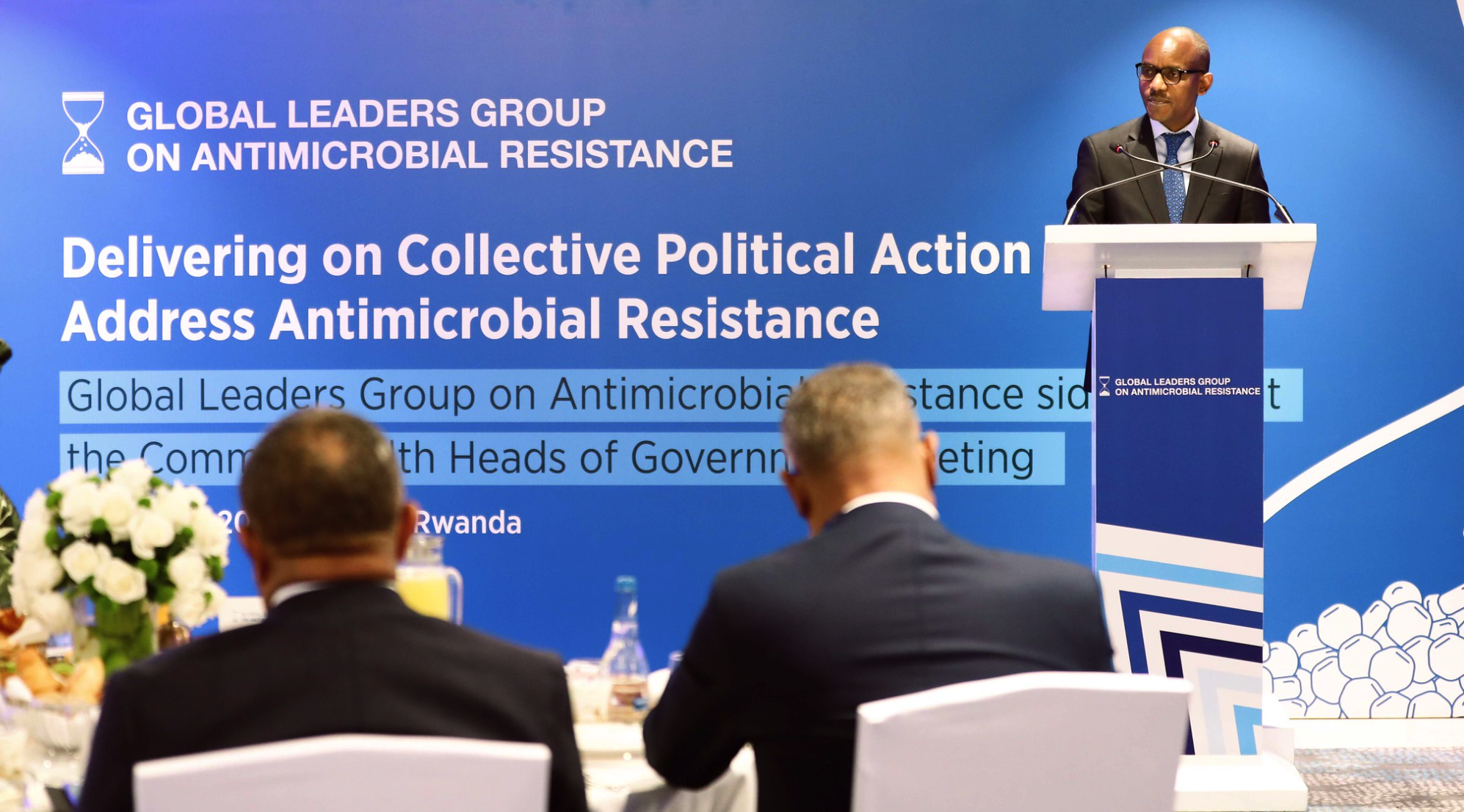Global Leaders Group on Antimicrobial Resistance

- 30 Apr 2024
Why is it in the News?
The European Society for Clinical Microbiology and Infectious Diseases (ESCMID) and the Global Leaders Group (GLG) on AMR jointly organized a high-level event, ‘Forging partnerships between science and policy’, on April 26, 2024, in Barcelona, Spain.
About Global Leaders Group on Antimicrobial Resistance:
- Established in November 2020, the Global Leaders Group on Antimicrobial Resistance is a collaborative effort of world leaders and experts from various sectors working together to accelerate political action against antimicrobial resistance (AMR).
- The Group serves as an independent global advisory and advocacy entity, striving to maintain public support, political momentum, and visibility of AMR on the global health and development agenda.
- Background: The Group emerged from a recommendation by the Interagency Coordination Group on Antimicrobial Resistance, aiming to strengthen global leadership and political action against AMR.
- The first meeting of the Group was held in January 2021.
Secretariat Support:
- The Quadripartite Joint Secretariat (QJS) on Antimicrobial Resistance, a joint effort by the Food and Agriculture Organization of the United Nations (FAO), the United Nations Environment Programme (UNEP), the World Health Organization (WHO), and the World Organisation for Animal Health (WOAH), provides secretariat support for the Group.
- Through its collaborative and multisectoral approach, the Global Leaders Group on Antimicrobial Resistance is committed to addressing the growing threat of AMR and promoting responsible and sustainable access to antimicrobials.
What is antimicrobial resistance (AMR)?
- Antimicrobial resistance (AMR) refers to the ability of microorganisms, such as bacteria, viruses, fungi, and parasites, to develop resistance to the effects of antimicrobial drugs, such as antibiotics, antivirals, antifungals, and antiparasitics.
- As a result, the medications become less effective or even ineffective at treating infections caused by these resistant microorganisms.
- AMR occurs when microorganisms undergo genetic changes that enable them to survive exposure to antimicrobial drugs.
- These changes can be shared between different microorganisms, leading to the spread of resistance genes.
- Over time, the increased use and misuse of antimicrobial drugs have accelerated the development of AMR.
Common factors contributing to AMR include:
-
- Overprescription of antimicrobials
- Non-adherence to prescribed treatment regimens
- Misuse of antimicrobials in agriculture and livestock farming
- Poor sanitation and hygiene practices
- Lack of access to clean water
- The rise of AMR poses a significant threat to public health, as it makes the treatment of common infections more difficult and increases the risk of complications.
- Additionally, AMR has implications for global health security, as resistant infections can spread rapidly across regions and become a major public health challenge.
